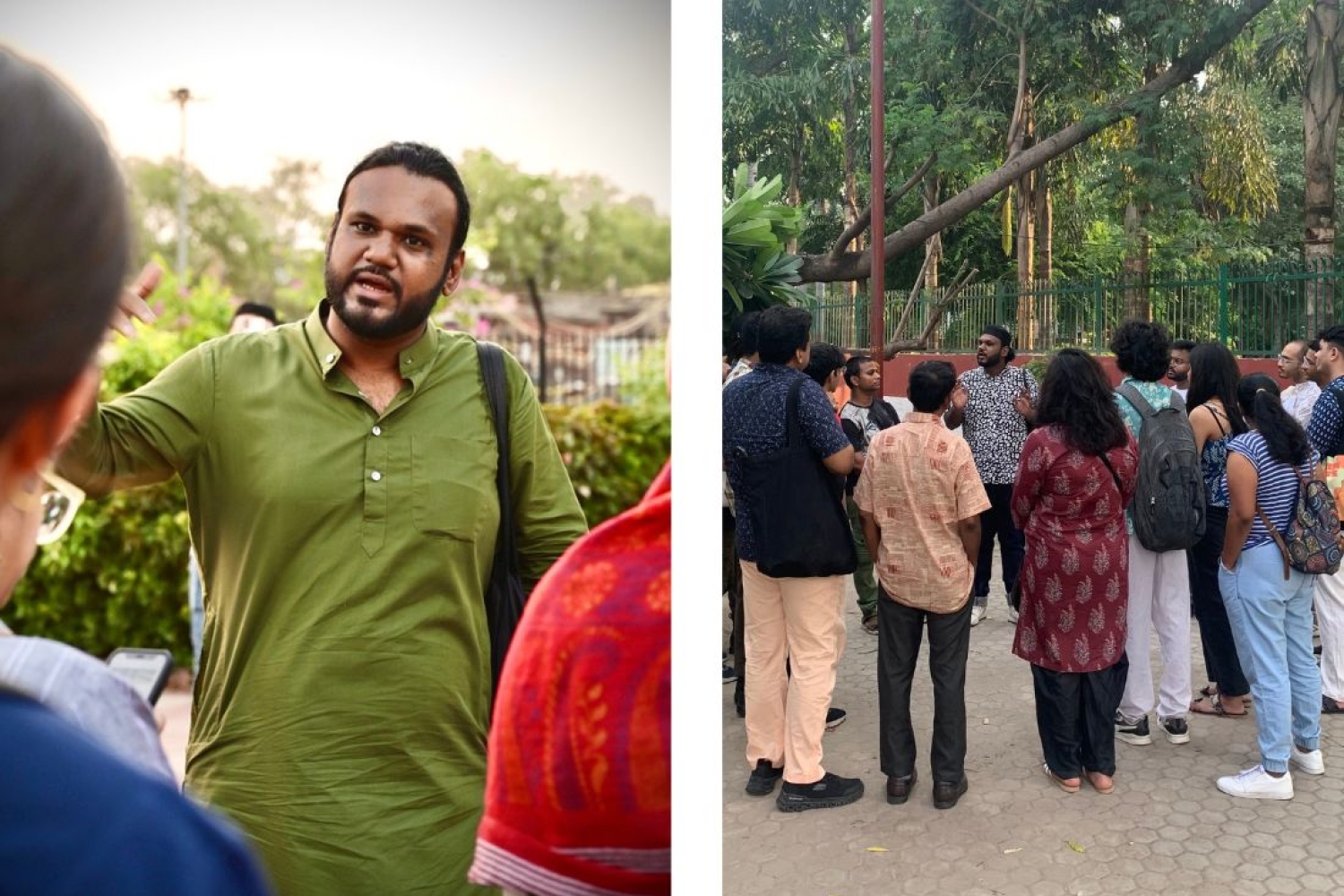

Each weekend when people enjoy their weekly offs, heritage conservationist Iqbal Ali sets out to rediscover Delhi's hidden queer history with a bunch of people. Their walks are carefully curated to spread the stories of the queer icons of the Mughal era. Additionally, it also becomes a safe space for queer people to interact with each other and come together to share their own stories. Not only that, Ali also takes their group to experience food in Old Delhi and a queer-owned cafe in South Delhi. On such a walk, I caught up with them to discuss their curation process, their idea behind the history walk, Mughal history and much more!
How did you get the idea of conducting a heritage walk tour?
I was always curious about the fact that there is so much history of our community that hasn’t been explored by our academics who often look at history through a cis-heteronormative lens. Heritage walks are a good medium to make our community and allies aware that we have existed in the past. As a heritage conservationist, I felt it is my duty to inform the people of my city about the geography of queer and trans landmarks.
What is your research process? How do you find these hidden stories and curate such walks?
Having done Heritage walks since 2015 in the city helped me curate the Queer series of heritage walks. I started this series a year and a half ago. The research process relies heavily on the historical text available. Much of the groundwork is done by our renowned late historian Saleem Kidwai and Ruth Vanita.
What are some of the queer icons of Mughal history that you cover in your walks?
We cover many historical characters who have shaped this city through the landmarks they have left behind. Like the Hijro ki Khanqah. A Sufi hospice in Mehrauli where the old Delhi Hijra community caretakers of this landmark gather every year. I also take people to the haveli of the hijra gharana who are responsible for the upkeep of the Mehrauli khanqah.
Razia Sultana also serves as a queer icon through challenging the 13th-century patriarchy, her tomb is also a part of our walks. We also cover the Dargah of queer Sufi mystic Sarmad Kashani who was in love with a Hindu boy from Sindh and was beheaded by the royal soldiers of 6th Mughal emperor Aurangzeb. One of my favourite queer landmarks is the Sunehri masjid mosque built by the Hijra Khwajasara who rose to so much power during the court of the 14th Mughal emperor Ahmed Shah Ghazi, the son of Muhammad Shah Rangeela. This is the emperor under whom Delhi was attacked by Nadir Shah of Iran who took back with him immense looted wealth including the Peacock Throne and Kohinoor diamond. There are many more landmarks.
Strangers come together for a walk and discover hidden histories with your walks. Do you think your walks are also a way for queer people to find their community?
Our queer heritage walks is a space for community members and our allies to interact with eachother. Especially if you are new to the city, many queer people prefer such an experience because they don’t like the nightlife queer scene in the city. I have even seen queer folks bringing their colleagues and siblings. A mother also came with her queer son once. It was beautiful.
Tell us about some of the food experiences that you have curated for your walks.
We have started a series called ‘queering the food’ through our food walks, we ask them to take us through a famous neighbourhood and narrate their personal queer experiences. In old Delhi, we have explored so much food, especially during the month of Ramzan. We not only explored the famous street food of Matia Mahal but took the participants to inner lanes where locals enjoy delicacies like bun kebab, bulbulikaha Daleem and turkman’s gate sutli kebab. Many people feel sharbat e muhabbat a milk and watermelon based drink is a popular drink here but here in old Delhi, the locals prefer drinks like Sharbat-e-muhabbat. We are also in discussion with a Chaikhaha to start our book club in old Delhi. We will launch it during the pride month of November, when Delhi inaugurates its pride march. We are also launching two more walks in the same month, Rainbow Stories from the Red Fort and Dastaan-e-Mehrauli Queer Heritage Walk.
Words Paridhi Badgotri
Date 28.09.2023